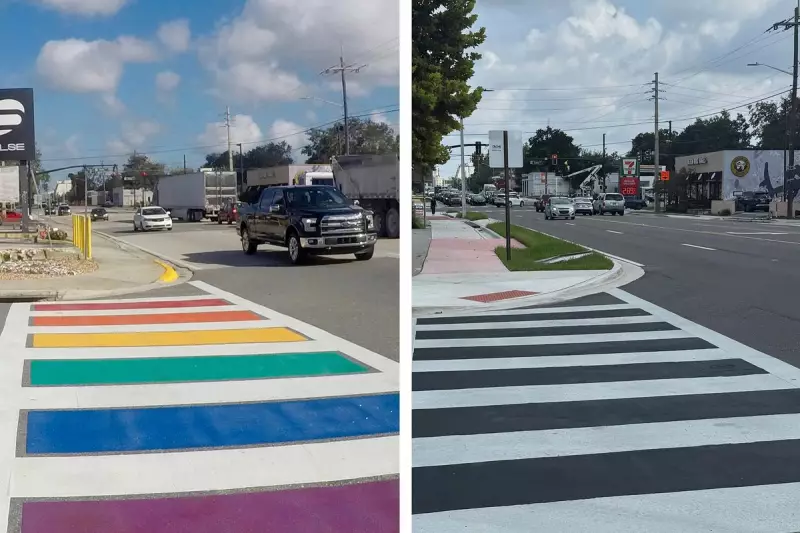
A plan to install a permanent rainbow crosswalk near the site of the Pulse nightclub massacre in Orlando has become the latest flashpoint in the escalating political rivalry between Donald Trump and Florida Governor Ron DeSantis.
The proposed tribute to the 49 victims, predominantly from the LGBTQ+ Latinx community, killed in the 2016 attack has been thrust into the centre of America's culture wars. Governor DeSantis's administration has moved to block the project, citing state statutes that prohibit markings on crosswalks.
In a stark political manoeuvre, former President Trump has seized on the issue to attack his potential Republican primary opponent. During a recent rally, Trump publicly pledged his support for the memorial, positioning himself in direct opposition to the Florida governor.
A Symbolic Battleground
The city of Orlando and local activists view the rainbow crosswalk as a vital symbol of remembrance and solidarity. For them, it represents a commitment to honour those lost and to stand with the LGBTQ+ community.
Governor DeSantis's office, however, has defended its position by strictly interpreting transportation regulations, arguing that decorative crosswalks could pose a safety risk and distract drivers. Critics allege the move is a calculated part of the governor's broader "anti-woke" agenda.
A Deepening Political Rift
This very public disagreement over a sensitive memorial highlights the deepening fissure between the two Republican heavyweights. Trump's intervention is widely seen as an attempt to undermine DeSantis's conservative credentials and appeal to a broader base ahead of a potential electoral showdown.
The political feud over a simple crosswalk underscores how cultural issues and memorialisation have become potent weapons in American politics, with real-world consequences for communities seeking healing and recognition.





